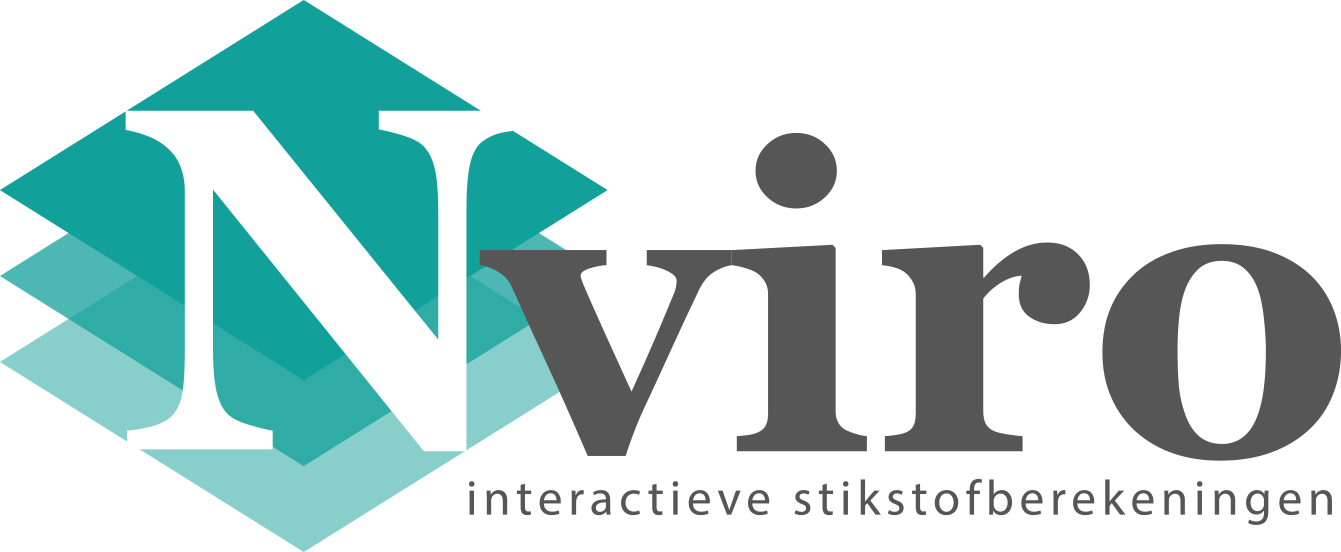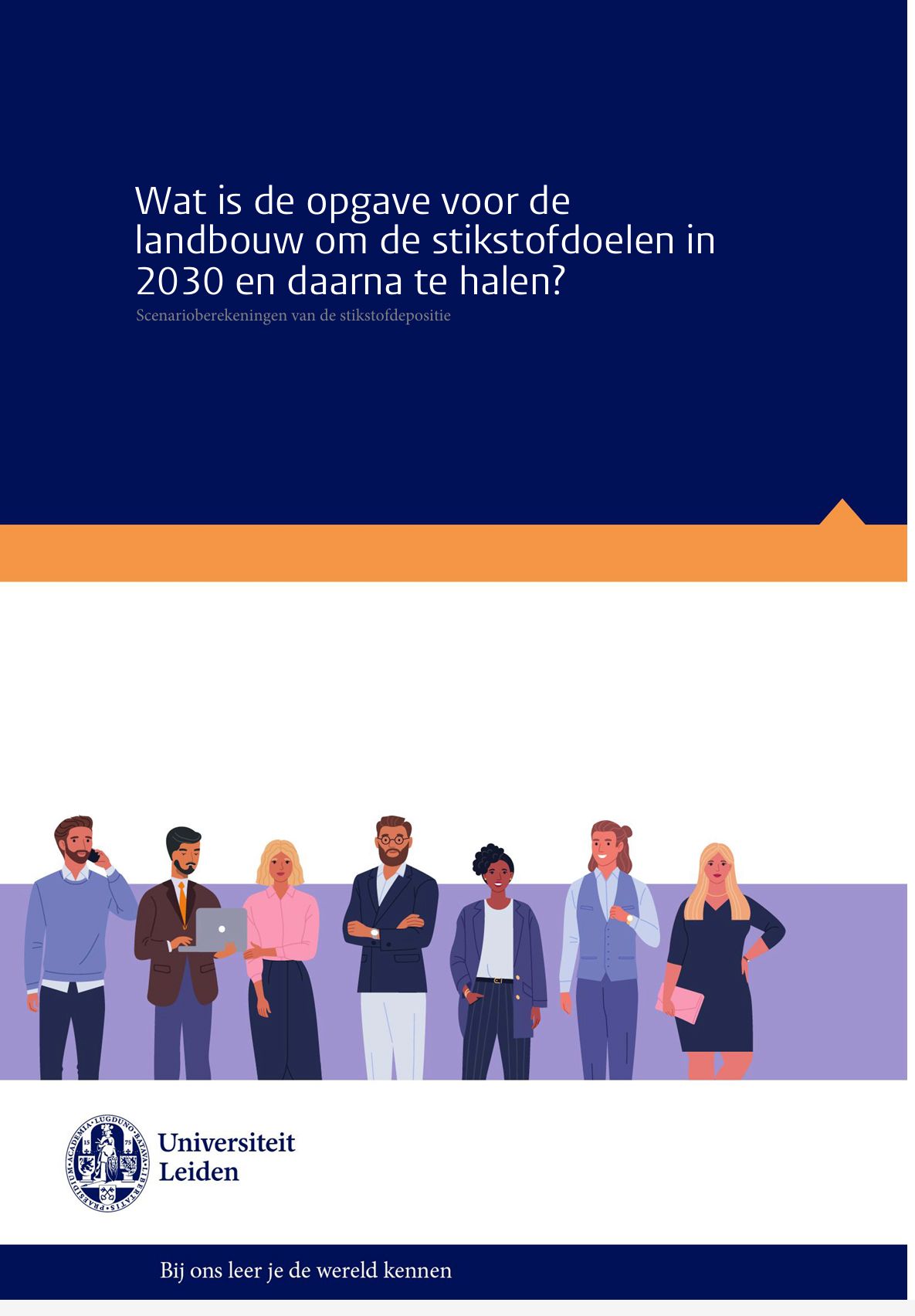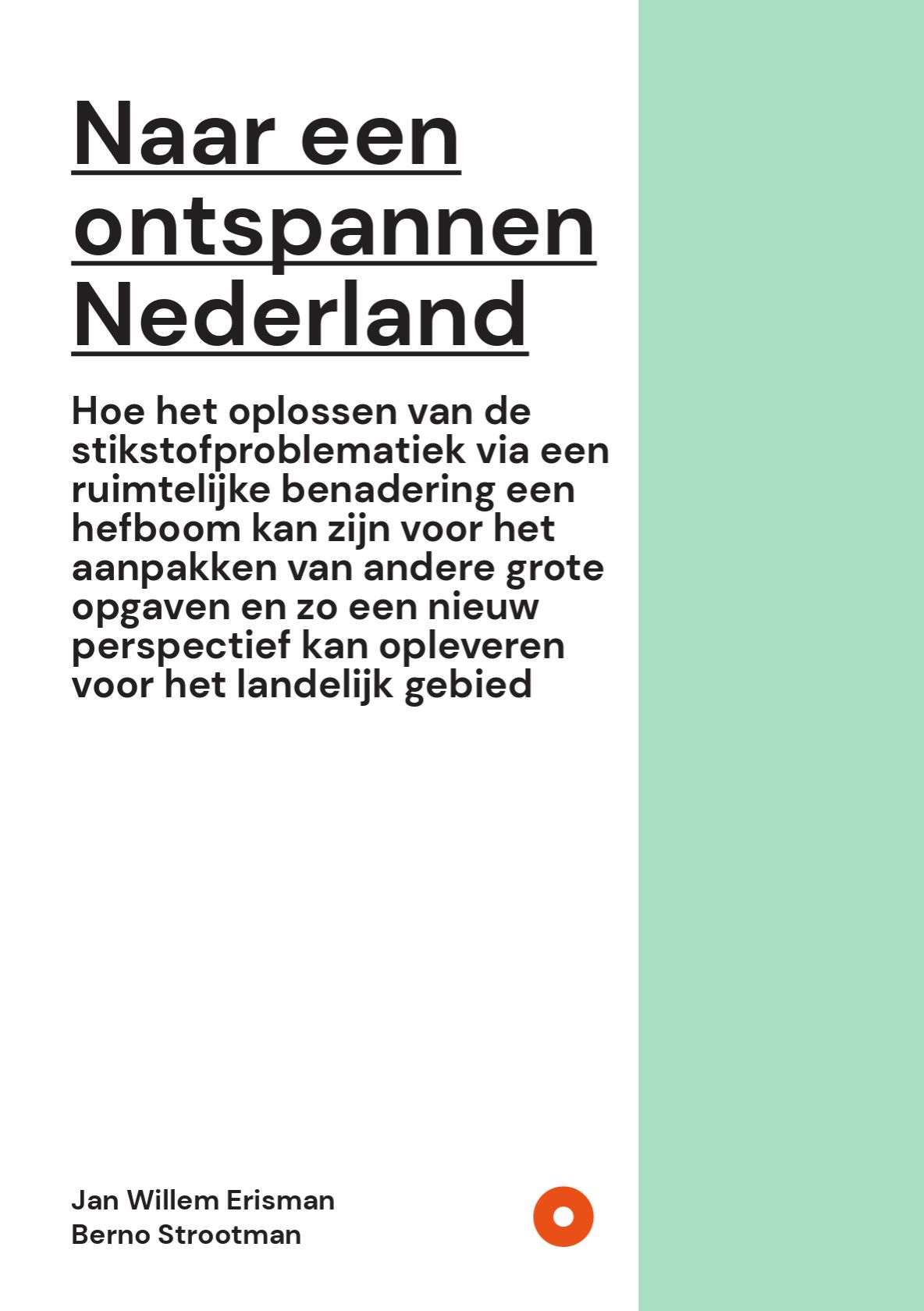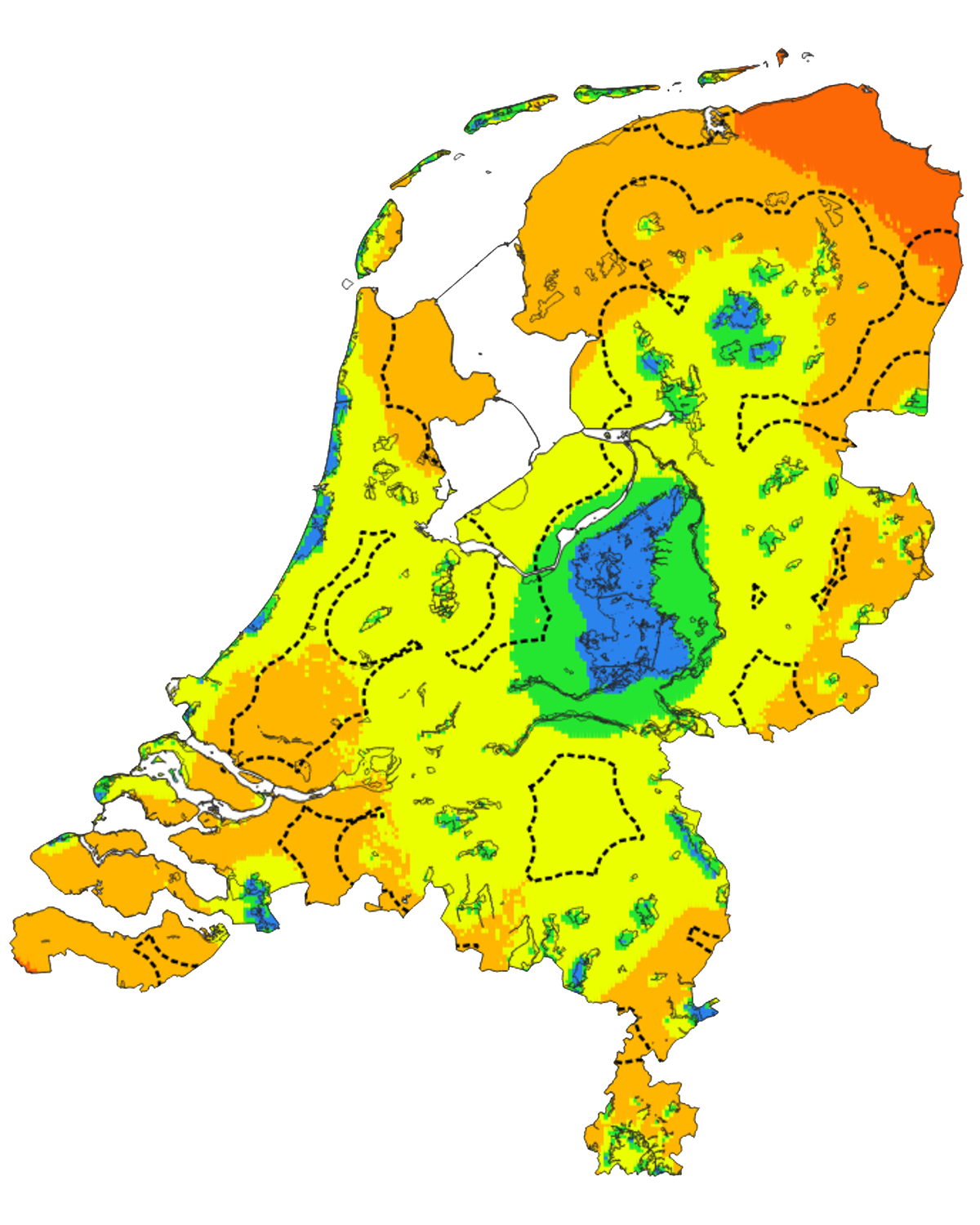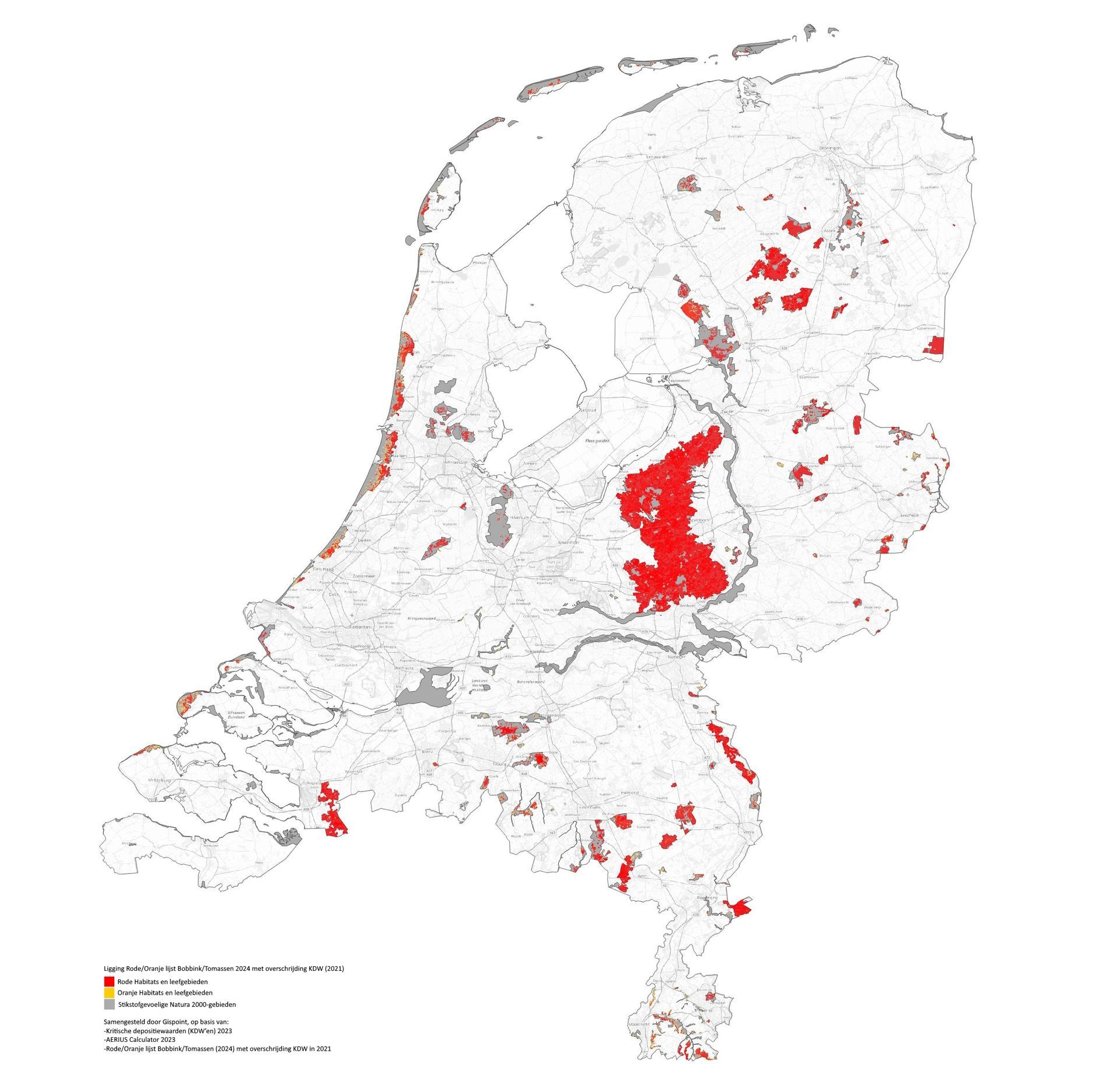Ton Brouwer
INDEPENDENT RESEARCH EXPERT & SENIOR GIS AND ENVIRONMENTAL-MODELARCHITECT
Ton Brouwer combines scientific modelling with practical, actionable solutions for government bodies, agriculture and nature-conservation organisations.
Unique combination of strategic insight, technical mastery, and scientific foundation.
Experience in direct engagement with farmers, governments, and NGOs.
Capability to make complex models and systems practically implementable.
Expertise in
mathematical principles, advanced computations, and deep algorithmic knowledge.
Rapid analysis of complex issues, identifying essential connections and translating them into immediate, effective solutions thanks to extensive domain knowledge and
abstract reasoning skills.
Proven impact:
Policy adjustments, participation as an expert in legal proceedings, and media appearances.
Interactive calculation model
ABOUT TON BROUWER
Strategic Insight, Broad Domain Mastery and Practical Implementability in Nitrogen Policy
Ton Brouwer is an independent Dutch research expert and Senior GIS and environmental-model architect, specialising in nitrogen deposition, emission modelling and agricultural systems.
With 25+ years of deep domain knowledge, scientific precision, technical mastery and a sharp insight into legal and policy contexts, he has developed a full GIS-solution with real-time pub/sub architecture, an optimised calculation model and 3D-visualisation functionality — proven stable across various practical applications. This technology forms the basis for innovative policy analyses and scenario-studies at national level.
CORE VALUES
A Rare Combination of Strength
Ton Brouwer belongs to a very small group of experts worldwide who have full experience in GIS-development, high-performance computations, 3D-modelling and nitrogen optimisation.
Technical expertise
Architect of complex spatial calculation systems (OPS/AERIUS-compatible, scalable and transparent);
Scientific foundation
Developer of the deposition-potential method, a proven efficient optimisation approach for nitrogen reduction;
Policy & legal knowledge
Experienced adviser to provinces, municipalities, the organisation BIJ12, Dutch ministries and NGOs;
Practical experience
Works directly with farmers, governments and societal organisations on implementable solutions;
Public visibility & impact
Involved in legal cases and media work. His publications have repeatedly triggered parliamentary questions and had direct policy influence;
Polymathic thinking
Combines deep expertise with a multidisciplinary approach, resulting in efficient and innovative solutions for complex technical issues.
Integrity and Objectivity are Core to His Work
He works for virtually all relevant parties within the nitrogen and agricultural domain — from agricultural organisations and governments to nature- and environmental organisations. That such a wide variety of stakeholders consult him illustrates the trust in his independent and balanced approach.
His analyses are always factual, transparent and focused on substantive quality — never on serving a single interest.
His work is characterised by an integrated approach and solution-orientation: technical innovation is always linked to societal relevance and administrative feasibility.
He therefore delivers not just analyses, but concrete solutions that contribute to a future-proof nitrogen and agricultural policy.
Competencies
Expertise Usually Requiring a Full Team of Specialists
Ton Brouwer belongs to a very small group of experts worldwide who have complete experience in GIS-development, high-performance computations, 3D-modelling and nitrogen optimisation.
He delivers production-ready systems that transform complex environmental and spatial data into executable, cost-efficient strategies to meet legal and policy goals.realiseren.
Includes:
• Event-driven pub/sub architecture for real-time data synchronisation
• Optimised calculation models for rapid source–receptor deposition calculations
• Fully integrated 3D modules for visualisation and interaction
• Optimisation-based strategy models generating cost-efficient and executable strategies to meet statutory nitrogen objectives
His solutions are stable, operationally tested and strategically impactful — expertise which would normally require a full specialist team.
His combination of technical mastery and domain knowledge is exceptionally rare; globally, it is estimated there are fewer than 5 people who have developed and implemented a similar end-to-end solution.
His work connects science, technology and policy, and offers expertise that normally would demand a full team of specialists.
INTERACTIVE SYSTEM SOLUTION
Extremely Fast Calculation Model for Interactive Nitrogen Calculations
Ton Brouwer developed Nviro, a full GIS solution with real-time pub/sub architecture, an optimised calculation model and 3D-visualisation functionality.
The solution has proven stable in diverse practical applications. Suitable for nitrogen calculations for governments, consultancy firms, nature organisations and other stakeholders, with immediate insight into the effect of emission measures on deposition in nature areas.
This technology forms the basis for innovative policy analyses and scenario research at national level.
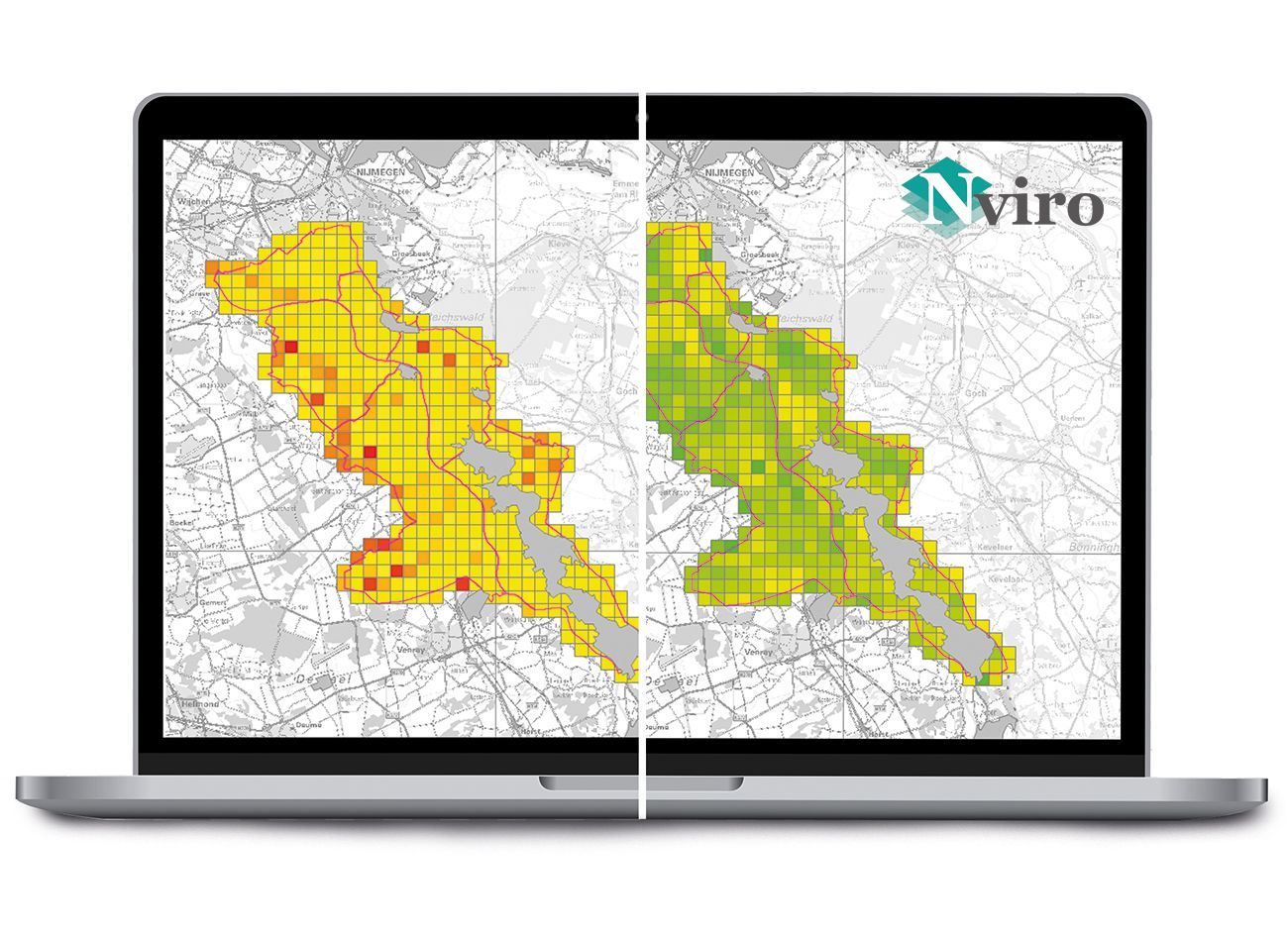
5,000x
faster
1,000+
emission sources per second
Calculations at the highest level of detail
OPTIMALISATION NITROGEN CALUCULATIONS
The Features and Capabilities of the Nviro Nitrogen-Calculation Model
1.
High computing power & speed
Nviro boasts a computation capacity that handles thousands of emission sources per second, allowing analyses to be performed “very rapidly”.
2.
Based on OPS-Pro / AERIUS compatibility
The calculation core of Nviro is based on the OPS-Pro model (the calculation core of AERIUS), and its outputs have been validated against AERIUS results.
3.
Flexibility in sources & measures
Supports custom emission sources or external datasets. Users can directly simulate measures and see how changed emissions affect deposition. The model is scalable and can be applied to small sub-areas or the entire Netherlands.
4.
Direct insight through visualisation / interactivity
It is possible to view in real time how changes in emissions translate into deposition changes in nature areas. Spatial plans can be developed with scenario explorations, and the software offers maps such as a “deposition potential map” which indicates which areas have the greatest influence from emissions.
5.
GIS integration & interchangeability
The input source data and calculation results are fully exchangeable with standard GIS systems.
6.
No limit on number of measures / scale / area size
Nviro is designed to support many types of measures, with large scale flexibility, from small to large-scale analyses.
RELEVANCE OF THE NVIRo CALCULATION MODEL
Develop an Effective Area Plan with Immediate Insight into Impact for Achieving Goals
Direct insight and monitoring with current emission figures
Policy work is often under time pressure. With Nviro, you can quickly calculate which measures are most effective within a given area. In addition, you can monitor directly using up-to-date emission data, ensuring that you always have access to the latest insights.
Scenario-analysis within a single tool
Rather than separate models, you can, within one environment, run and compare different combinations of emission-reduction measures.
Validation and transparency
Because the core is based on OPS/Pro and validated against AERIUS, the system has a solid technical foundation which helps defend outcomes in policy or legal discussions.
Support in legalisation or area-process trajectories
Especially in complex dossiers (for example PAS-notifications), the system can help show which reduction is possible and whether goals are met, with interactive feedback on the impact of changes.
Link Between the Deposition-Potential Method and the Nviro Calculation Model
The deposition-potential method and the Nviro calculation model - both developed by Brouwer - are two complementary instruments which, each at their own scale and with their own strength, contribute to an efficient and scientifically justified approach to the nitrogen challenge in the Netherlands.
Strategic Optimisation
The Deposition-Potential Method
The deposition-potential method is developed as a scientifically underpinned optimisation method which determines, for the whole of the Netherlands, the most efficient allocation of emission reductions. The method works iteratively and focuses at each step on those areas where emission reduction has the greatest effect on exceedance of Critical Load (CDV) in Natura 2000 areas.
Features of this approach:
• Operates at national scale;
• Efficiency and purpose-fulness as a starting point;
• Scientifically transparent and reproducibles;
• Leads to realistic and implementable reduction-strategies aligned with legal rulings and policy goals (such as 50% or 74% area under Critical Load by 2030 and 2035).
The method is excellently suited to determine: how much reduction, where and in what order.
Practical Implementation and Area‐Level Analysis
The Nviro Calculation Model
Where the deposition-potential method determines what must be done and where the most gain lies, the Nviro calculation model makes it possible to translate this strategy into practice.
Nviro offers:
• computing power and speed for large numbers of sources;
• immediate insight into spatial distribution of emissions and deposition;
• real-time monitoring with the most recent emission figures;
• scenario comparison and visual feedback on measures;
• interchangeability with standard GIS systems and policy maps;
• compatibility with the OPS/AERIUS calculation model, making results scientifically robust.
With Nviro, policy-makers, provinces or consultancy firms can develop
area-oriented plans aligned with the strategic goals from the deposition-potential analysis.
| Aspect | Deposition-Potential Method | Implementation (Nviro Calculation Model) |
|---|---|---|
| Scale | National/regional | Area-oriented / local |
| Purpose | Determine optimal reduction direction | Execute and visualise measures |
| Nature | Scientific, model-based, strategic | Operational, practical, interactive |
| Result | Efficient emission-reduction scenario | Concrete implementable plan and measurable measures |
COMPLETE SYSTEM
Complementary, not competing
Both approaches complement each other. The combination results in a full system for nitrogen policy:
• The deposition-potential method determines what should be done and where the greatest gain is;
•
The Nviro calculation model shows how it can be realised in practice and executed.
COMBINING SYSTEMS
Policy Relevance
By combining these systems you gain a unique opportunity to:
• Base policy on efficiency and effectiveness, aligned with general principles of proper governance;
• Provide scientifically substantiated and legally robust justification for measures;
• Make policy-goals
genuinely achievable and implementable, without unnecessary investment or loss of support.
Discover the difference with the Nviro calculation model. Faster. More accurate. Unlimited.

"I reduce the problem to its essence. And then I solve it."
- Ton Brouwer -
Independent Research Expert &
Senior GIS and Environmental-Model Architect
DUTCH PUBLICATIONS
Deposition Potential
What is the task for agriculture to meet the nitrogen goals in 2030 and beyond?
Prof. Jan Willem Erisman, Centrum voor Milieuwetenschappen, Universiteit Leiden. Scenarioberekeningen van de stikstof, Ton Brouwer, Gispoint. 14 maart 2025
Towards a more balanced Netherlands
Prof. Jan Willem Erisman, Centrum voor Milieuwetenschappen, Universiteit Leiden.
Berno Strootman, Strootman Landschapsarchitecten, Amsterdam. Stikstofanalyses met Aerius-model, Ton Brouwer, Gispoint. mei 2021
The nitrogen deposition contribution map for effective emission reduction from agriculture
Jan Willem Erisman, Centrum voor Milieuwetenschappen, Universiteit Leiden, afdeling Environmental Biology. Stikstofanalyses met Aerius-model, Ton Brouwer, Gispoint. januari 2021
Area of nitrogen-sensitive nature below the critical load (2030) based on deposition potential
Scenarioberekeningen van de stikstof, Ton Brouwer, Gispoint. Expert geografische milieuanalyses. 25 september 2024
DUTCH PUBLICATIONS
Used by Third Parties
Socio-economic and ecological effects of theoretical scenarios for reducing nitrogen deposition on nitrogen-sensitive Natura 2000 areas
Wageningen University & Research, oktober 2025
Calculation outcome of parliamentary letter Wiersma and ministerial commission Economy & Nature Renovation
Vereniging Leefmilieu, 5 mei 2025
Guidance on possibilities for introducing the computational lower limit of nitrogen deposition
Raad van State,
W11.25.00063/IV, 26 mei 2025
Spatial impact of zoning for agricultural emission reductions
RIVM Briefrapport 2021-0166 A. Bleeker
Effect of new insights on achieving the NPLG nitrogen targets
RIVM Briefrapport 2024-0054, S.B. Hazelhorst, C.W.M. van der Maas, P. Romeijn. juni 2024
Explanation of indicative emission reduction objectives per area
RIVM M&V-2022-0062. 9 june 2022
Where is nitrogen emission reduction most effective?
BNNVARA, Vroege Vogels.
february 2021
COOPERATION
Contact
Ton Brouwer
Independent Research Expert &
Senior GIS- and Environmental-Model Architect
Ermelo, Netherlands
